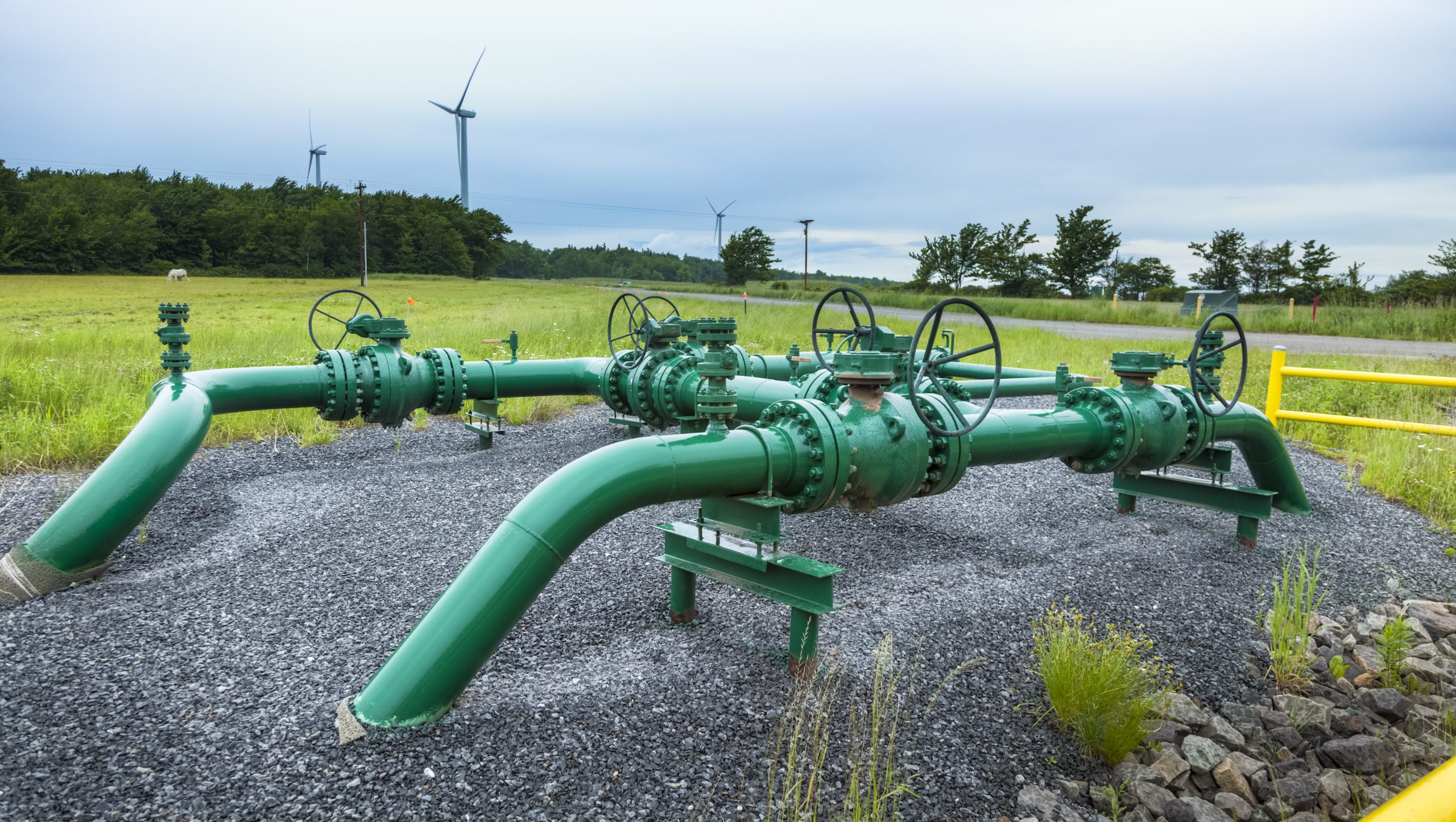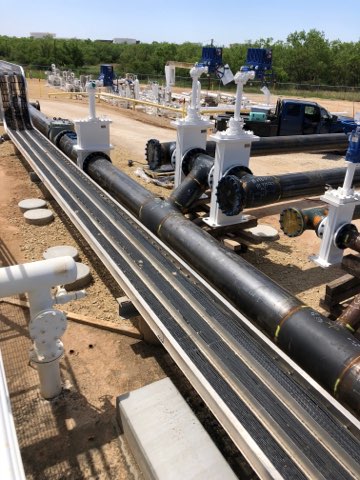Pipeline Construction Services Best Practices for Risk Management
Wiki Article
The Important Overview to Comprehending Pipeline Construction Solutions and Their Importance
Pipeline Construction solutions are essential to the transportation of important resources such as water, gas, and oil. These services entail meticulous planning and implementation, adhering to stringent safety and security and environmental requirements. As the industry adapts to modern-day difficulties, recognizing its parts and implications ends up being increasingly vital. What aspects contribute to the expanding relevance of these solutions in today's economic climate? The following areas will discover these vital aspects.Introduction of Pipeline Construction Services
Pipeline Construction solutions include a variety of tasks essential for the setup and upkeep of pipelines used to deliver various compounds, consisting of gas, oil, and water. These solutions are vital for guaranteeing the secure and effective motion of sources from one area to an additional. The procedure commonly begins with complete preparation and design, which considers regulative needs, ecological factors to consider, and logistical challenges.Excavation and grading of the land are performed to prepare the site for Pipeline setup as soon as preparation is full. This is adhered to by the real laying of the pipelines, which involves welding or joining sections together to create a constant circulation course. After installment, strenuous testing is carried out to assure honesty and safety and security. Upkeep solutions are additionally supplied to resolve any kind of concerns that might occur over time. Generally, Pipeline Construction solutions play a crucial function in sustaining facilities for power and water distribution.
Key Components of Pipeline Construction
A successful Pipeline Construction job relies upon several crucial parts that guarantee the safe and effective installment of the Pipeline system. Comprehensive site analyses are critical, as they determine the geographical and ecological elements that may impact Construction. Next, the selection of ideal products, such as pipes and installations, is vital for securing resilience and compatibility with the transferred substances.Moreover, progressed Construction techniques, consisting of trenchless innovation and directional drilling, improve effectiveness and decrease environmental influence. Effective job management is an additional critical element, working with labor, devices, and timelines to meet job objectives.
Furthermore, interaction amongst stakeholders, consisting of engineers, contractors, and local authorities, warranties alignment on job requirements and requirements. Thorough quality control procedures throughout the Construction process make sure compliance with market requirements and make the most of the Pipeline's operational life expectancy. Jointly, these parts form the backbone of a successful Pipeline Construction job.
Safety And Security Standards and Laws in Pipeline Construction

Governing bodies, such as the Occupational Safety and Health And Wellness Management (OSHA) and the Pipeline and Hazardous Materials Security Administration (PHMSA), stated certain needs that govern Construction methods. These consist of procedures for tools usage, worker training, and emergency situation feedback treatments. By executing these requirements, Construction firms not just shield their staff members yet additionally secure public depend on. Ultimately, strenuous safety and security procedures add to the lasting success of Pipeline tasks, ensuring they fulfill both environmental and operational assumptions.
Environmental Considerations in Pipeline Projects

Ecological considerations are indispensable to the preparation and implementation of Pipeline projects. These tasks need to evaluate possible effects on environments, water resources, and neighborhood wildlife. Performing complete environmental influence evaluations (EIAs) is vital, permitting stakeholders to identify and minimize risks prior to Construction begins.
Shielding sensitive locations, such as habitats and marshes, frequently requires applying certain design attributes or alternative transmitting to minimize disturbance. Additionally, Pipeline drivers are entrusted with establishing approaches for avoiding spills and leakages, which can have damaging effects on the atmosphere.
Involvement with local neighborhoods is essential, as public issues can bring about project adjustments that boost ecological protection. Conformity with laws set by environmental companies assures that projects satisfy sustainability criteria, fostering a balance in between infrastructure requirements and ecological conservation. Ultimately, resolving ecological considerations not only safeguards nature yet additionally promotes neighborhood trust and job feasibility.
The Duty of Modern Technology in Pipeline Construction
Modern technology plays an important function in modern Pipeline Construction, boosting performance and precision. Advanced surveying techniques permit accurate planning and execution, minimizing environmental impact and project hold-ups. In addition, the assimilation of automation and robotics simplifies procedures, minimizing labor expenses and enhancing safety on Construction sites.Advanced Surveying Strategies
Advanced evaluating methods play a necessary function in the successful execution of Pipeline Construction tasks. These approaches take advantage of innovative innovation to guarantee precise mapping and evaluation of the surface where pipelines will be mounted. Methods such as Geographic Info Solution (GIS), LiDAR (Light Detection and Ranging), and 3D modeling allow designers to picture and examine the landscape, recognizing prospective obstacles and ecological worries. By utilizing these innovative tools, teams can boost accuracy ready and positioning, considerably lowering the threat of errors during Construction. In addition, real-time information collection permits prompt modifications and educated decision-making throughout the job lifecycle. Inevitably, these checking developments add to improved performance, security, and sustainability in Pipeline Construction initiatives.Automation and Robotics

Economic Influence of Pipeline Facilities
Pipeline framework plays a crucial role in assisting in my site and forming regional economic climates profession. By providing a trusted ways of transporting oil, gas, and other assets, pipelines minimize transport costs and improve supply chain performance. This facilities brings in financial investment, stimulates work creation, and promotes financial growth in bordering areas.In addition, the Construction and maintenance of pipes contribute considerably to neighborhood economic climates, developing many employment possibility in numerous fields, from engineering to labor. The increase of work typically results in enhanced costs in regional companies, additionally reinforcing financial task.
Furthermore, pipes improve energy safety and security by you can try this out guaranteeing a steady supply of resources, which is crucial for residential demands and commercial procedures. As regions become adjoined via Pipeline networks, they get to more comprehensive markets, boosting competition and economic resilience. As a result, the economic influence of Pipeline framework is complex, affecting both immediate local economic climates and wider regional development.
Future Fads in Pipeline Construction Providers
The future of Pipeline Construction services is progressing in action to technical advancements, regulative changes, and expanding environmental considerations. Technologies such as drones and robotics are improving examination and upkeep processes, boosting security and efficiency. Automation is positioned to decrease labor costs and raise precision in Construction procedures. Furthermore, the increasing focus on sustainability is prompting companies to adopt environmentally friendly materials and techniques, lining up with global initiatives to lower carbon impacts.Governing structures are likewise adjusting to address ecological effects, pressing for greater openness and responsibility in Pipeline jobs. In addition, the integration of clever innovations, consisting of real-time monitoring systems, is expected to enhance the integrity and efficiency of Pipeline networks. As energy demands shift toward renewable resources, Pipeline Construction solutions will likely see a surge in jobs connected to biofuels and hydrogen transportation. Generally, these patterns suggest a transformative period for the Pipeline Construction sector, concentrated on technology and sustainability.
Frequently Asked Inquiries
What Sorts of Pipelines Are Commonly Constructed?
Various kinds of pipelines are typically built, including oil, sewage, gas, and water pipes - Pipeline Construction Services. Each offers unique functions, promoting the transport of important sources across areas while adhering to security and ecological policiesThe length of time Does a Typical Pipeline Task Take?
The period of a common Pipeline job varies significantly, commonly varying from several months to a few years. Elements affecting this timeline include job intricacy, governing authorizations, and ecological considerations that need to be resolved.Who Regulates Pipeline Construction Business?
Pipeline Construction companies are controlled by numerous government, state, and regional firms, including the Pipeline and Hazardous Materials Safety And Security Administration (PHMSA) and state utility compensations, making certain compliance with safety and ecological standards throughout the Construction process.What Are Usual Materials Made Use Of in Pipeline Construction?
Common materials utilized in Pipeline Construction include steel, polyethylene, and PVC. Each material provides distinct advantages such as resistance, toughness, and flexibility to rust, making them suitable for different applications in moving fluids and gases.
How Are Pipeline Construction Costs Approximated?
Pipeline Construction expenses are estimated by evaluating factors such as product expenditures, labor rates, project complexity, ecological factors to consider, and regulative demands (Pipeline Construction Services). Accurate price estimate assurances effective budgeting and task preparation throughout the Construction processPipeline Construction services incorporate an array of activities important for the installation and maintenance of pipes made use of to deliver numerous compounds, including gas, water, and oil. A successful Pipeline Construction project counts on numerous vital components that assure the effective and safe installation of the Pipeline system. Advanced checking techniques play an essential function in the successful implementation of Pipeline Construction projects. Various kinds of pipelines are commonly built, consisting of oil, Recommended Site gas, water, and sewage pipelines. Pipeline Construction prices are approximated by evaluating variables such as product costs, labor prices, project complexity, environmental factors to consider, and governing demands.
Report this wiki page